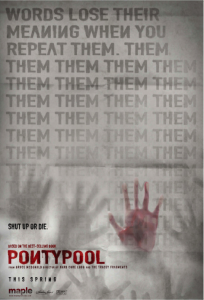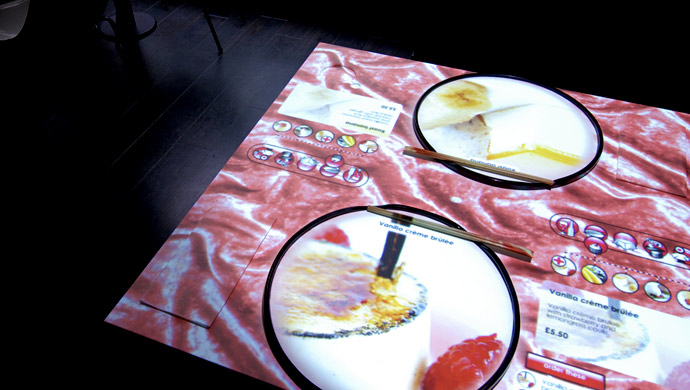Ian Wilson of the new U Waterloo Stratford Institute talked to the York/Peking Symposium on the Canada 3.0 Forum among other things. He talked about the Stratford Declaration (reproduced below) that emerged. It is a national declaration that calls for a Canadian project.
Canada 3.0 – The Stratford Declaration June 22, 2009
On June 8-9, 2009, over 1500 people interested in the digital economy gathered in Stratford, Ontario to review and debate the opportunities and challenges for Canada’s future. Canada 3.0 brought together industry, government and academia in workshops and discussions all focused on Canada’s digital future.
Recognizing the need for urgent attention to the issues of digital media, the participants in the Canada 3.0 Conference agreed to the Stratford Declaration:
• Success in digital media will be central to national prosperity in the 21st century. This fast growing field is producing jobs, ideas, products, services, companies and opportunities at a rapid pace – but Canada is not yet a world leader.
• Canada has the potential to be internationally competitive in this field on a sustained and focused basis, but it will not get there based on current trends.
• The foundations of Canada’s digital economy and society are not yet strong and stable. Significant upgrades are required to the digital infrastructure, including both the technological infrastructure and made-in-Canada digital content.
• Consistent accomplishment in the digital economy will require collaboration, partnership and collective action on an unprecedented national and cross-sectoral scale. Canada must use the digital revolution to reinvent the manner in which this country trains, educates, creates new businesses, cooperates, serves the population and views its collective future.
• Canada’s competitive advantage lies in its ability to bridge the technological and content fields, and to thereby produce and deliver internationally competitive products and services. The creative talents of this country must be connected to the technological potential of this age.
• Canada must become a global test-bed for new digital products and services and must be seen as a new economy incubator where consumers, governments and companies are known for embracing digital innovation.
• Canada needs to produce a regulatory and legal environment attuned to the 21st century and needs to use these arrangements to propel the nation into a position of global leadership in digital rights management.
• The digital ecology produces global competition for talent, ideas, patents and emerging companies. Canadians need to make a strong commitment to the country as a place to train, innovate, work and prosper if the digital economy is to flourish.
• There is an urgent need for a national project of such scale, scope and impact that Canadians come to understand the potential of the digital economy and that produces the collaboration, cooperation and cross-country engagement necessary for international digital leadership.
• Canada must set an ambitious target – to become the first truly digital nation in the world – and must move with urgency and determination toward this goal.
Canada 3.0 – La Déclaration de Stratford Le 22 juin 2009
Les 8 et 9 juin 2009, la ville de Stratford, en Ontario, a accueilli plus de 1 500 intéressés qui se sont penchés sur le dossier de l’économie numérique et ont débattu les possibilités et défis qui se dessinent pour le Canada de demain. Réunissant des délégués de l’industrie, des gouvernements et du monde universitaire, la conférence Canada 3.0 a été le théâtre d’ateliers et d’échanges portant sur l’avenir numérique du Canada.
Conscients de la nécessité de porter une attention immédiate aux enjeux liés aux médias numériques, les participants de la conférence ont entériné la Déclaration de Stratford :
• Au 21e siècle, la réussite des médias numériques sera au cœur de la prospérité du pays. Emplois, idées, produits, services, entreprises et débouchés se multiplient à un rythme effréné dans ce domaine en plein essor. Cependant, le Canada n’y occupe pas encore une position de chef de file mondial.
• Le Canada possède tous les atouts requis pour affronter de façon durable et ciblée la concurrence internationale dans le domaine. Cependant, ce potentiel ne se réalisera jamais à moins que le pays ne change de cap.
• Le Canada ne dispose pas encore d’assises stables et solides en ce qui touche l’économie et la société numériques. L’infrastructure numérique doit faire l’objet d’améliorations marquées, notamment sur le plan de l’infrastructure technique et des contenus numériques de confection canadienne.
• En matière d’économie numérique, la cohérence des réalisations nécessite une collaboration, des partenariats et une action concertée sans précédent à l’échelon national et intersectoriel. Le Canada doit profiter de la révolution numérique pour réinventer ses modèles de formation, d’éducation, de création de nouvelles entreprises, de coopération et de service au public ainsi que pour revoir la façon dont il envisage l’avenir collectif de la nation.
• L’avantage concurrentiel du Canada tient à sa capacité de conjuguer techniques et contenus et, ainsi, de produire et de diffuser des produits et services compétitifs dans l’arène mondiale. Les talents créateurs de ce pays doivent être « branchés » sur les possibilités techniques de notre époque.
• Le Canada doit devenir une plateforme mondiale d’essai des nouveaux produits et services numériques. Il doit également être perçu comme un incubateur de la nouvelle économie où consommateurs, gouvernements et entreprises se distinguent par leur capacité de faire place à l’innovation numérique.
• Le Canada doit se doter d’un milieu réglementaire et légal qui s’accorde avec le 21e siècle. Il lui faut également miser sur de telles dispositions pour se propulser au sommet du palmarès mondial de la gestion des droits d’auteur électroniques.
• L’écologie numérique alimente la concurrence mondiale sur le plan des talents, des idées, des brevets et des nouvelles entreprises. Les Canadiens doivent s’engager résolument envers leur pays pour en faire un lieu où apprendre, innover, travailler et prospérer. Le développement futur de l’économie numérique en dépend.
• Il est urgent de lancer un projet national d’une envergure, d’une portée et d’une incidence telles que les Canadiens en viendront à saisir les possibilités offertes par l’économie numérique et qu’il en découlera la collaboration, la coopération et la mobilisation intersectorielle requises pour l’exercice d’un leadership numérique mondial.
• Le Canada doit se fixer un objectif audacieux — devenir la première véritable nation numérique du monde — et s’employer prestement et résolument à atteindre cet objectif. (This is from the Facebook Page.)

